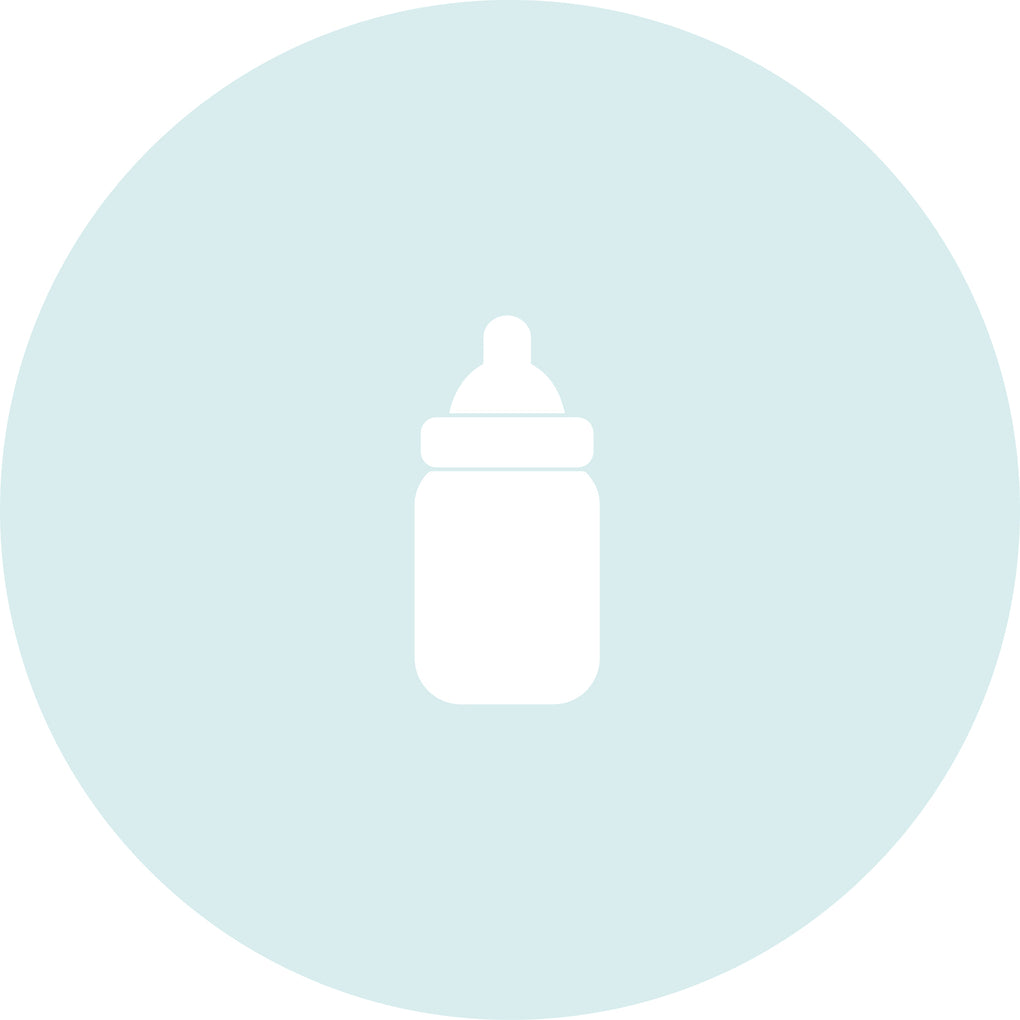You’re riding high on the joy of your pregnancy news and revelling in the changes that are happening to your body. It’s such a special journey that every mother-to-be cherishes experiencing. Then the morning sickness starts and it can really dampen that “pregnancy glow” that everyone talks about. Or for some that sudden dash to the toilet to be sick is the first sign of pregnancy. Either way, it is a very common part of being pregnant and one, unfortunately, a lot of expectant mums deal with.
During early pregnancy, up to nine out of 10 people will feel sick or be sick at some point. So if you spend your early weeks of pregnancy feeling anything but blooming, you’re not alone. It’s not pleasant, and it can effect some worse than others. We get a lot of questions from parent's to be around morning sickness, so we have pulled together and answered all your most commonly asked questions about morning sickness.

What is morning sickness?
The exact causes are still unknown, but it is thought morning sickness is a reaction to high level of pregnancy hormones, in particular, human chorionic gonadotropin (hCG). These hormones rise quickly during the first few weeks of pregnancy, which is often linked to the sickness most feel at the beginning of their pregnancy.
In the vast majority of cases, morning sickness, although an unpleasant experience, has no health risk for the baby and is a regular part of pregnancy.
When does morning sickness start in your pregnancy?
It’s important to note that everyone is different and sickness can affect everyone slightly differently and at different times. But as a general rule, morning sickness usually starts by the 4th to 7th week of pregnancy, however it can start as early as the 3rd week and later than the 10th week. The good news: For the vast majority of expectant mums, morning sickness doesn't typically linger much beyond week 12 to week 14 of pregnancy. That said, a few women continue to experience symptoms into the second trimester, and a very few, particularly those expecting multiples, may suffer some well into the third.
Does it just happen in the mornings?
Unfortunately the name can be a little misleading and make people think sickness only happens in the mornings. We hate to be the bearer of bad news, but for some morning sickness isn’t just exclusive to the mornings. Some expectant mum’s have bouts of sickness throughout the whole day and possibly into the nightime too.
Is it true morning sickness is worse with twins?
Women pregnant with twins often say that their morning sickness was worse with twins than with their other pregnancies. Researchers believe that the hormone levels, which may cause morning sickness, are at much higher levels when women are expecting multiples. This can increase morning sickness symptoms and can even cause morning sickness in women who have not suffered from nausea in previous pregnancies.

If I had morning sickness with my first, will I have it with my next?
It is not guaranteed that just because you had bad sickness with you first pregnancy, that any after that will be as bad. Or equally if you sailed through your first pregnancy, that does not mean it will be as easy the next time. How morning sickness affects pregnant women differs from one woman to the next—and even from one pregnancy to the next.
Will morning sickness effect my baby?
No, feeling or being sick is a pretty normal side effect of being pregnant and in most cases, nothing to worry about. Morning sickness won’t affect your baby as long as you’re able to keep some food and fluid down. Feeling sick is a good sign that the placenta has developed well and that your pregnancy hormones are working to keep your pregnancy going. With that being said, a lack of morning sickness by no means indicates an unhealthy pregnancy.
When should I see a doctor?
In some cases pregnant women can experience extreme sickness. When it is at this extreme level it is known as hyperemesis gravidarum. It is a very rare, but very extreme version of morning sickness that is thought to affect about 1-2% of all pregnant women. Symptoms include;
- cannot keep fluids down because of severe vomiting
- serious risk of dehydration and weight loss
- alkalosis (a dangerous drop in the normal acidity of the blood)
- hypokalemia (low blood potassium)
Tell your doctor or midwife straight away if you are vomiting frequently and having trouble keeping any food or drink down. Your child counts on you to provide those important nutrients and vitamins to help them grow. If you are experiencing severe sickness and not being able to keep much food down, you could be limiting the nutrients your little one is getting. To help, your doctor may prescribe treatments for severe morning sickness, such as anti-sickness medicines, vitamin supplements or steroids to relieve the nausea. In 90 percent of hyperemesis gravidarum cases, symptoms go away by the fifth month of pregnancy.

Are there any at home remedies that might help?
Whilst there is no magical cure, and sometimes the only thing that helps is simply the passing of time onto a different trimester, there are some little things you can do that might give you some relief. These ideas have not been scientifically proven to work but they have helped some women and anything is worth a try right!?
- Eat little and often. You may not be able to stomach a full meal, so try to focus on little portions of food often to help you keep the nausea away.
- Avoid trigger foods. You will pretty quickly learn what foods or smells become your triggers and which ones make your sickness feel worse.
- Get plenty of rest. Make sure you are getting plenty of rest as tiredness or lack of energy can make nausea feel worse.
- Drink plenty of liquids. Make sure you stay hydrated and replace any fluids you could be loosing from being sick. Try sipping little and often.
- Eat ginger. Some say this is a bit of an old wives’ tale, but there is some evidence ginger may help reduce nausea and vomiting. There are also some drinks that contain ginger.
- We do also recommend trying out HotTea Mama's Morning Rescue tea.
It's an award-winning tea to help offer some relief from the symptoms of morning sickness and uses natural ingredients designed to soothe nausea.
We wish we could gift you some miracle cure for morning sickness, but unfortunately, for some it is just part of the pregnancy journey. But we can all take comfort in knowing that it will all be worth it in the end!




















